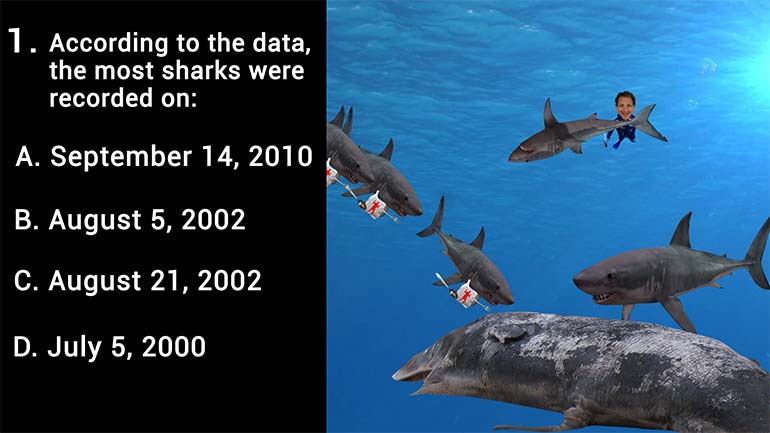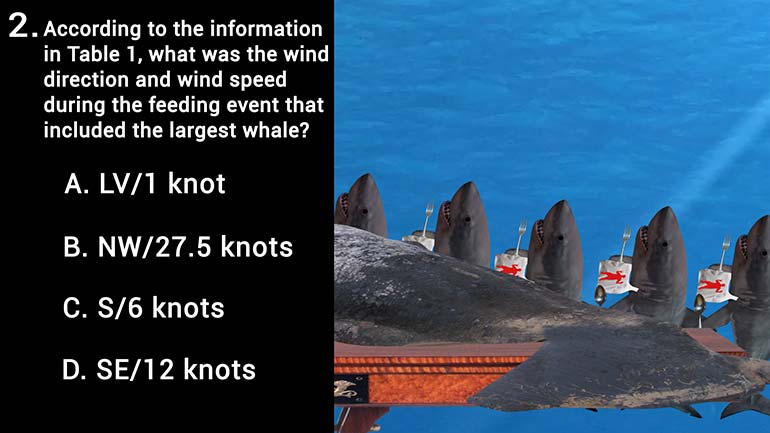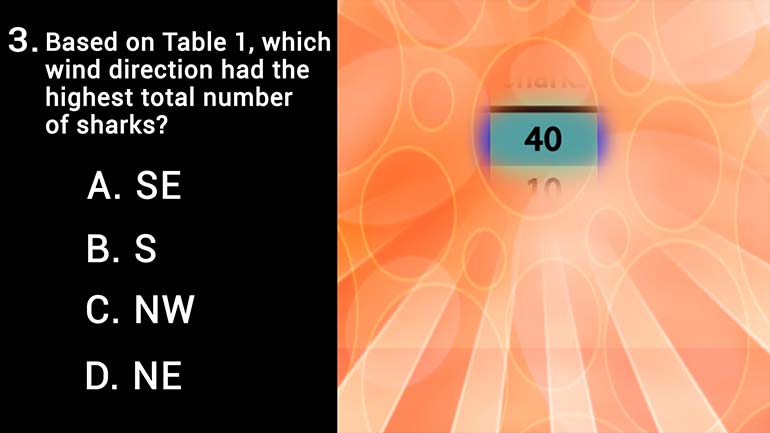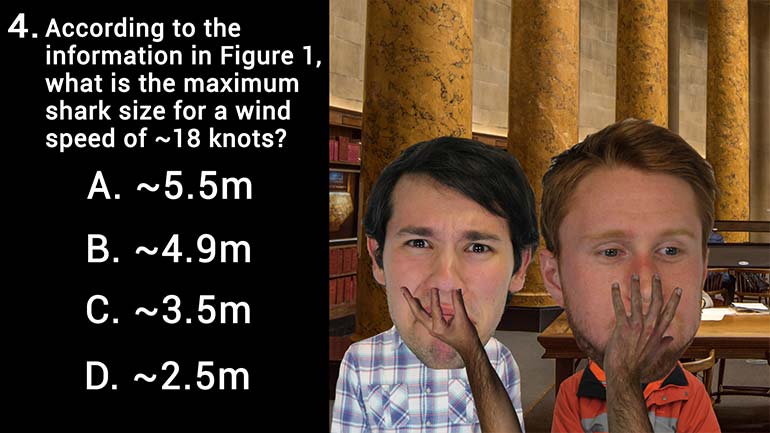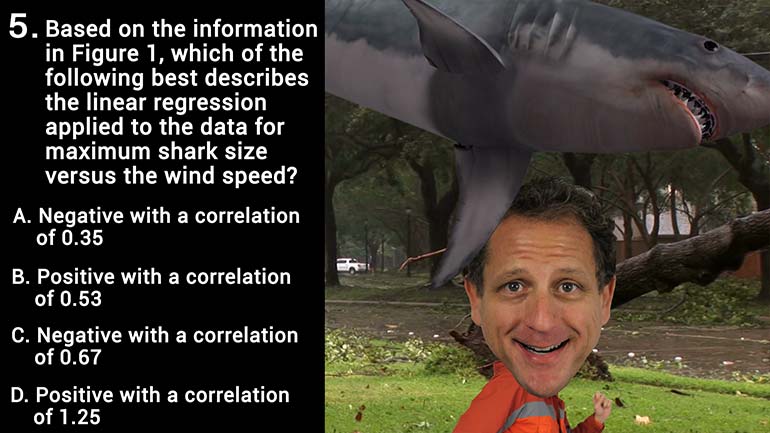ShmoopTube
Where Monty Python meets your 10th grade teacher.
Search Thousands of Shmoop Videos
ACT Aspire Science: Busy Bee Butts 0 Views
Share It!
Description:
According to the information in Figure 2, what is the maximum number of bees observed in a frame at a Class 5 distance?
Transcript
- 00:00
Yeah Oh All right More shmoop science for you Sparing
- 00:07
people figure one right here shows the relative strength of
- 00:11
abdominal thrust activity versus experimental time While a predatory wasp
- 00:17
is in front of the nest No small scale waves
- 00:20
are in the blue area and big scale waves Aaron
Full Transcript
- 00:22
the red area All right now down to figure to
- 00:25
right here that shows the number of shaking bees per
- 00:28
frame versus experimental time The velocities in distances air split
- 00:32
into different classes A class one distance is closest to
- 00:37
the nest and a class five distance is farthest from
- 00:40
the nest Well velocity is split into eight classes with
- 00:44
Class one being the slowest in class Eight being the
- 00:46
fastest Well the closer the hornet the higher the wave
- 00:50
strength and the faster the hornet flies past the net
- 00:53
The higher the wave strength with wave strength is controlled
- 00:57
by number of shaking bees I eat the higher number
- 01:00
of shaking bees The stronger the wave right makes sense
- 01:04
Okay so And then here's some detail on figure one
- 01:06
You kind of skin that if you we want him
- 01:08
all right then figure to when the bees and the
- 01:11
birds and whatever Alright that's actually a different course Well
- 01:15
here we go according to the information and figure to
- 01:18
this thing right here What is the maximum number of
- 01:21
bees observed in a frame at a class five distance
- 01:27
All right So first things first graf A or graft
- 01:34
be They both have their own class fives so we
- 01:37
need to determine which one is relevant for this question
- 01:40
For the caption for figure to tells us that d
- 01:44
x z featured in graf a stands for the distance
- 01:47
of the Hornet from the nasty while the ecstasy stand
- 01:52
for the Hornets Velocity Well since the question asks about
- 01:56
Class five distance now we could just focus on Graff
- 01:59
Egg and just forget all about graft being sorry Be
- 02:03
better luck next time you are looking at the key
- 02:05
to grab a and figure to hear waken see the
- 02:08
class five distance is indicated by the color yellow with
- 02:11
the highest point of the yellow area reaches on the
- 02:14
Y axis to the number seven which would be its
- 02:17
maximum value right here zooming over to read the label
- 02:20
on the Y axis What we conceive this number tells
- 02:23
us the shaking bees per free mme that number and
- 02:28
it's about seven thirty by Axis seven This hornet really
- 02:32
needs Teo mind its own bee's wax Get ready Tto
- 02:35
do the defense of shimmer their little bees Yeah thing
- 02:39
in there
Up Next
According to the data, the most sharks were recorded on:
Related Videos
According to the information in Table 1, what was the wind direction and wind speed during the feeding event that included the largest whale?
Based on Table 1, which wind direction had the highest total number of sharks?
According to the information in Figure 1, what is the maximum shark size for a wind speed of ~18 knots?
Based on the information in Figure 1, which of the following best describes the linear regression applied to the data for maximum shark size versus...
